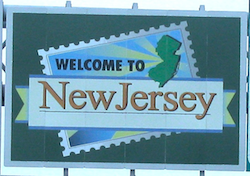New Jersey Online Poker Sites Complete Soft Launch, Officially Debut
 New Jersey’s fully regulated online poker era officially began today following a five-day “soft launch” period notable for a handful of technical snafus but no overriding problems of the type that prevent online gambling services from remaining operational. The state’s operational sites tolled over into live era as of the stroke of midnight, continuing on from the final moments test action uninterrupted, and will now be available to anyone in the state on a 24/7 basis.
New Jersey’s fully regulated online poker era officially began today following a five-day “soft launch” period notable for a handful of technical snafus but no overriding problems of the type that prevent online gambling services from remaining operational. The state’s operational sites tolled over into live era as of the stroke of midnight, continuing on from the final moments test action uninterrupted, and will now be available to anyone in the state on a 24/7 basis.
Seven of the state’s 12 casinos tested one or more sites during the five-day phase-in period; a total of 13 sites have been approved by the state, though not all 13 were actually available to Jersey consumers during the soft-launch window. For now, one of the seven casinos will keep its online site officially in a “testing” state, that being GoldenNugget.com, but that is according to the request of Golden Nugget officials, according to New Jersey Division of Gaming Enforcement director David Rebuck, who spoke during an afternoon conference call about the live debut.
Golden Nugget customers probably won’t notice any differences anyhow, since real-money gaming is available during the testing phases. As for numbers, Rebuck commented that at least 10,000 New Jersey gamblers signed up and played during the testing phase, with an even larger expected to jump on the available sites now that the first handful have been given the final go-ahead.
Few gaming-related problems were reported, though Golden Nugget, the site that will remain in testing, reported interactive slots games that froze during play, to consumers’ dismay. Other technical issues that occurred were similar to what were experienced in Nevada’s earlier online rollout, including a handful of hopeful players who reported overzealous geolocation blocking, likely in location near New Jersey’s borders.
Getting the registration details correct on the first try also seemed to be important, as a couple of anecdotal stories surfaced on poker forums of players who made errors regarding personal data — mistyping dates of birth or home addresses, as an example — and then struggled to get approval from the system once erroneous data caused the original player profile to be rejected.
Of larger concern to the state’s gaming regulators, approved casinos and players themselves, were difficulties some players experienced in getting deposits approved to the online sites. Despite the fact that credit-card deposits have been approved for state-authorized gambling purposes, some banks themselves have announced a refusal to process any sort of gaming processing. This will continue to hamper online-gambling financial transactions, even though Visa and Mastercard, the two largest credit-card issuing companies, have announced the introduction of special processing codes for formally authorized online gaming, such as in Nevada or New Jersey.
At least four banks have announced their unwillingness to process online-gaming transactions, which also include online-lottery purchases as authorized in New York and Illinois. Those four are Bank of America, Wells Fargo, American Express (a major card issue alongside Visa and MasterCard, and PayPal (a division of eBay).
The four banks provide a collective curiosity. BOA has long been an anti-gambling crusader among banking institutions, and its refusal to participate seems to be a corporate political decision, as BOA is perfectly fine working with the state of Washington’s regulated-marijuana industry, as detailed in this report.
Similarly, PayPal’s refusal to get on board may have roots in the site’s one-time history of being a major conduit for online gamblin transfers in the pre-UIGEA days; it was PayPal’s mid-’00s pullback from online gaming (at the strng pressure of US gaming officials) that opened the door for firms such as FirePay and NETeller to make hundreds of millions in the processing vacuum that ensued. Wells Fargo and AMEX likely fit into the BOA category, where corporate politics and resistance to online gaming are a strong contributing factor.
Nonetheless, the online gaming in New Jersey is full-speed ahead… and largely operational. It’ll be interesting to monitor the state’s sites to see if the players flock online, and what effect that will have, if any, on New Jersey’s struggling brick-and-mortar casinos.

















COMMENTS